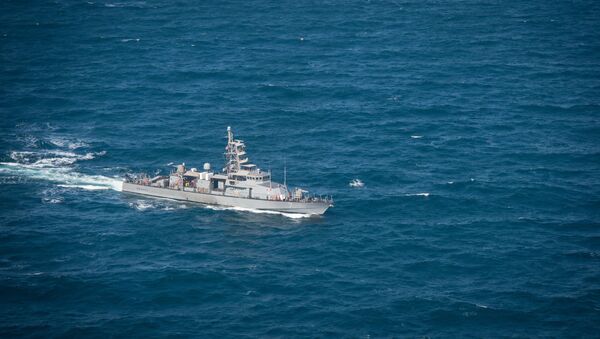Will France be able to find a middle ground in this situation, given Emmanuel Macron’s desire to establish channels of communication with Tehran and raise his rating by means of foreign policy after the six-month “yellow vests” crisis?
France’s former Ambassador to Iran Francois Nicoullaud, in an interview with Sputnik, argues that this will not be easy for the Europeans:
“We, the French, do not want to dissociate ourselves from the British, but we believe that the British themselves are being trapped”, he said.
Sputnik has also discussed this subject with Dr Emmanuel Dupuy, president of the Institute of European Perspective and Security Studies, and Thierry Coville, a research fellow with the Paris-based Institute for International and Strategic Relations (IRIS).
“Iran will perceive the deployment of European forces in the Persian Gulf as the cooperation of Europe with the United States to resume maximum pressure on Iran. This will not benefit European diplomacy, which is making efforts to maintain Iran’s participation in the JCPOA. Statements are being made, but it would surprise me if Europe would undertake to carry out this initiative”, Thierry Coville said, sharing his view.
France's Attempts to Restore Peace
What is the position of France? It seems that Emmanuel Macron wants to come through unscathed with it. He is trying to establish direct contact with Iranian President Hassan Rouhani. However, the unviable decisions (including the INSTEX payment system) that France proposed after the termination of the Joint Comprehensive Plan of Action (JCPOA) by Donald Trump, do not generate enthusiasm in Tehran. Emmanuel Dupuy stresses that France is in a predicament here:
“It seems that France is like a tightrope walker. On the one hand, President Macron tirelessly reiterates that he intends to act as a mediator. In support of his intentions, he has twice sent his new diplomatic adviser Emmanuel Bonne to Tehran. Recently, he received Iran's Deputy Foreign Minister Abbas Araghchi at the Champs-Élysées, who delivered a message to Macron from President Rouhani. At the same time, it seems that France wants to act alone without the participation of its European partners. This means that the offer for European mediation came either too early or too late, at a time when the Americans are taking the British with them”.
By all accounts, the situation in the Strait of Hormuz will depend on the internal alignment of forces in the United States, Great Britain, and France, which is emerging from the six-month crisis of the “yellow vests” movement. In the Champs Elysees, they would like to further strengthen the position of Emmanuel Macron in the international arena. It was for this purpose that his trips to Belgrade and Tunisia were organised before the 45th G7 summit, which will be held in Biarritz on 24-26 August.
The views expressed in this article are solely those of the speakers and do not necessarily reflect the official position of Sputnik.



